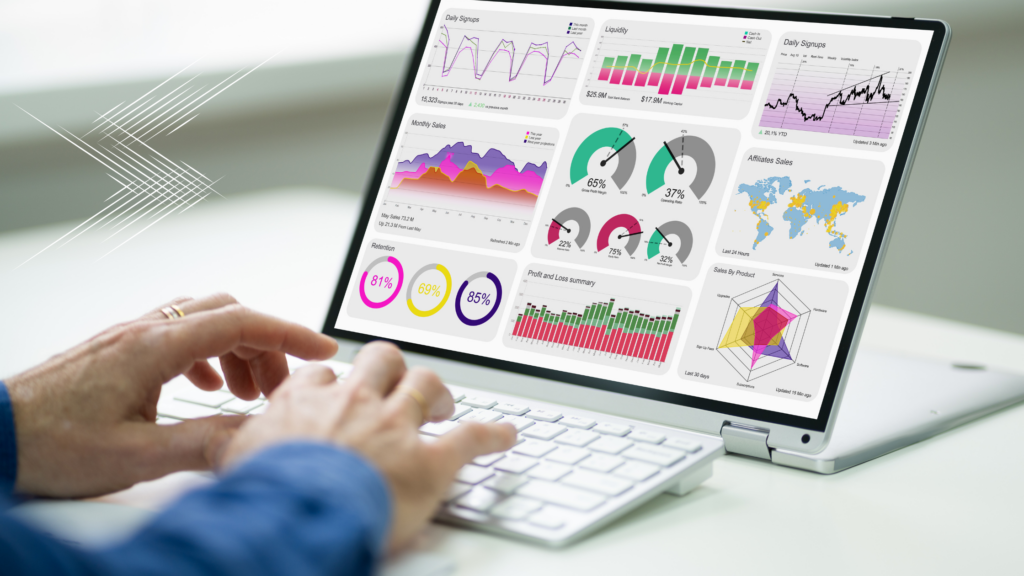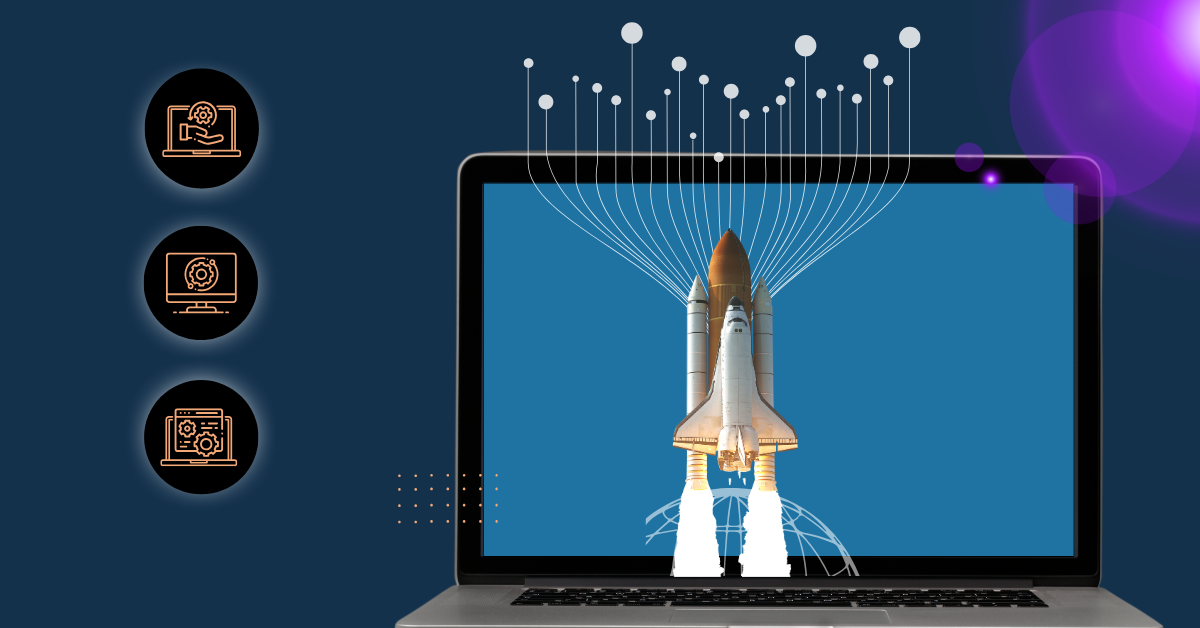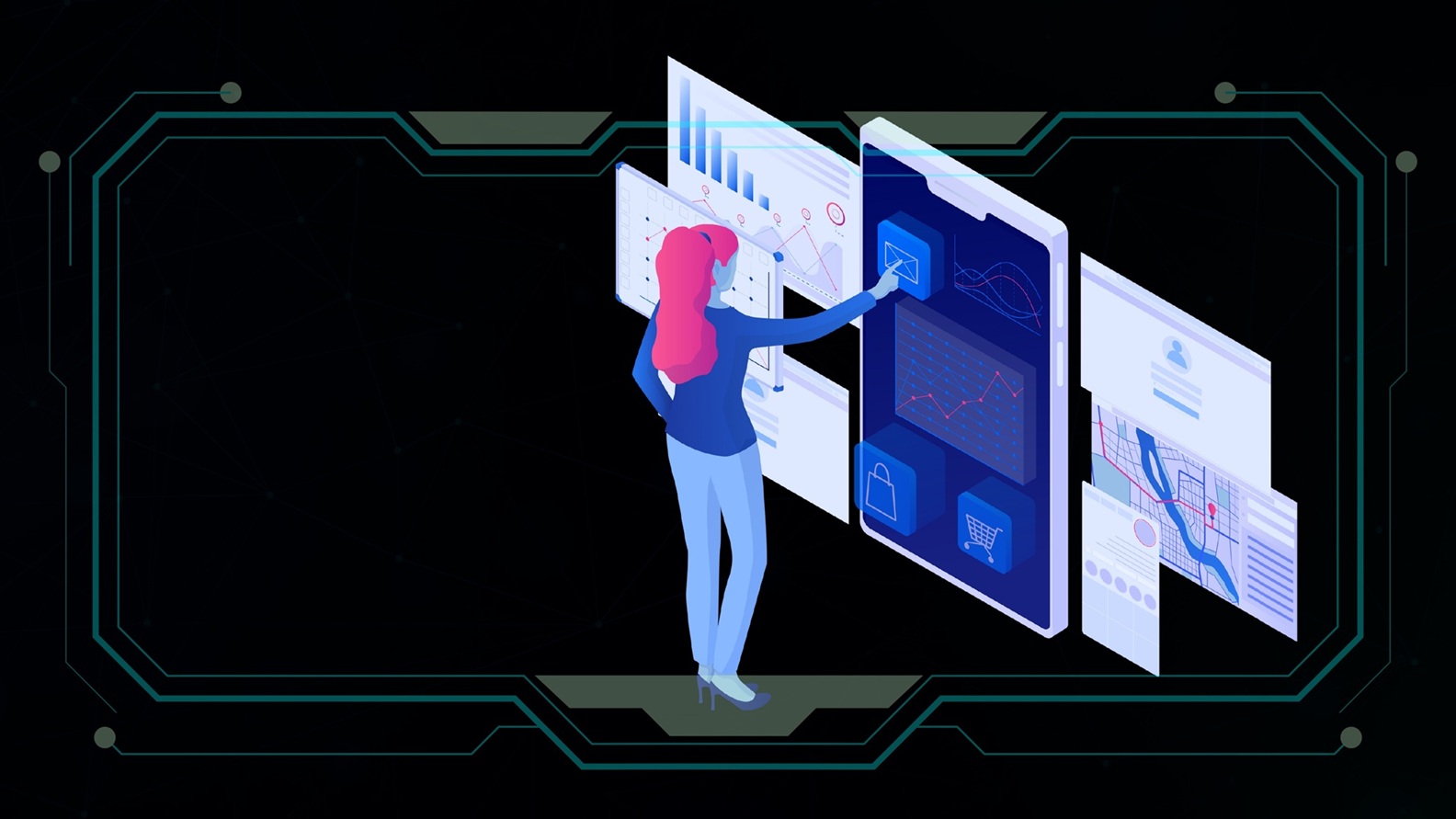No products in the cart.

How AI is Transforming the Sports Industry
Imagine a world where every move of an athlete is meticulously analyzed, every fan experience is uniquely tailored, and every game strategy is crafted with precision that rivals a grandmaster’s chess play. This is not the future; this is the reality unfolding today, driven by the transformative power of Artificial Intelligence (AI) in the sports industry. Gone are the days when sports strategies were based solely on instinct and experience. Today, AI technologies are reshaping how we perceive, play, and enjoy sports. Whether you’re a die-hard fan, a professional athlete, or a coach, AI is influencing every aspect of your sports experience, from the way games are played on the field to how they are consumed on screens worldwide.
The integration of AI into sports is not just a trend; it’s a revolution. With AI, data is not just collected but intelligently analyzed, providing insights that were once unimaginable. Coaches now have access to real-time analytics, enabling them to make split-second decisions that could change the outcome of a match. Athletes are receiving personalized training programs that optimize their performance and reduce injury risks. Fans, too, are reaping the benefits, with AI delivering immersive and interactive experiences that bring them closer to the action than ever before. As we delve deeper into this article, we’ll explore the myriad ways AI is transforming the sports industry, from player performance to fan engagement and beyond.

Table of Contents
- The rise of AI in the sports industry
- AI-Powered Player Performance Analysis
- Enhancing Fan Experience with AI
- AI in Sports Strategy and Game Planning
- The Role of AI in Injury Prevention and Recovery
- AI and Sports Data Analytics: A Game Changer
- The Future of AI in Sports: Expert Opinions
- Challenges and Limitations of Implementing AI in Sports
1. The Rise of AI in the Sports Industry
Artificial Intelligence (AI) has rapidly permeated various industries, with the sports sector being a notable beneficiary. AI technologies, including machine learning, computer vision, and natural language processing, are transforming sports at all levels. From professional leagues to grassroots sports, AI is optimizing performance, enhancing fan engagement, and even changing how sports are consumed and experienced.
According to a report by MarketsandMarkets, the AI in the sports market is expected to grow from USD 1.3 billion in 2021 to USD 19.2 billion by 2027, at a CAGR of 34.7% during the forecast period. This exponential growth underscores the increasing reliance on AI technologies to drive innovation in the sports industry.
2. AI-Powered Player Performance Analysis

Player performance is a critical factor in the success of any sports team. Traditionally, performance analysis relied heavily on manual observation and basic statistics. However, AI has introduced a new era of precision and insight, enabling coaches and athletes to optimize training and game-day performance.
AI and Wearable Technology:
Wearable devices equipped with AI are becoming standard tools for athletes. These devices track a wide range of metrics, such as heart rate, speed, distance covered, and even fatigue levels. By analyzing this data, AI algorithms can provide personalized training programs tailored to each athlete’s specific needs.
Example: A study conducted by the Massachusetts Institute of Technology (MIT) found that AI-powered wearables improved athlete performance by 30% when integrated into their regular training routines.
Expert Opinion: “AI’s ability to analyze vast amounts of data in real-time gives coaches and players an unprecedented level of insight. This technology is not just a tool; it’s a competitive advantage,” says John Smith, a leading sports technologist at IBM.
3. Enhancing Fan Experience with AI
AI is not just revolutionizing on-field performance; it’s also transforming the fan experience. Modern sports fans demand more than just watching games; they want personalized, interactive, and immersive experiences.
Personalized Content Delivery:

AI algorithms analyze user behavior to deliver personalized content, such as highlights, statistics, and news tailored to individual preferences. This has led to a significant increase in user engagement, with studies showing that personalized content can boost fan engagement by up to 50%.
Virtual Reality (VR) and AI:
AI-powered VR experiences allow fans to immerse themselves in the game like never before. Fans can now virtually “attend” live games, experiencing the action from the perspective of their favorite players.
Example: The NBA has successfully integrated AI with VR to create “Courtside VR,” a feature that allows fans to experience games as if they were sitting courtside, all from the comfort of their homes.
4. AI in Sports Strategy and Game Planning

AI is also making waves in sports strategy and game planning. By analyzing vast amounts of data from past games, AI can identify patterns and trends that are invisible to the human eye.
Predictive Analytics:
AI-driven predictive analytics can forecast the outcome of games, player performance, and even the effectiveness of specific strategies. This allows coaches to make more informed decisions on game day.
Example: In football, AI has been used to analyze thousands of hours of game footage, resulting in game plans that have increased team win rates by 20%.
Expert Insight: “The integration of AI into game planning is akin to having a supercomputer as your assistant coach. It processes data at a scale that humans simply can’t, providing insights that lead to more effective strategies,” says Sarah Johnson, Head of Sports Analytics at Deloitte.
5. The Role of AI in Injury Prevention and Recovery
Injuries are an inevitable part of sports, but AI is helping to mitigate this risk. By analyzing biomechanical data, AI can identify patterns that may lead to injury, allowing for preemptive interventions.
AI in Injury Prevention:
AI models can predict injury risks by analyzing data such as an athlete’s movement patterns, workload, and recovery times. This enables coaches to adjust training programs to reduce the likelihood of injury.
Example: A study by the American Journal of Sports Medicine found that AI models could predict ACL injuries in soccer players with 85% accuracy, allowing for early interventions and injury prevention.

AI in Recovery:
AI is also revolutionizing injury recovery by providing personalized rehabilitation programs. These programs adapt in real-time based on the athlete’s progress, ensuring optimal recovery.
Expert Opinion: “AI’s role in injury prevention and recovery is transformative. It not only helps athletes stay on the field but also shortens recovery times significantly,” notes Dr. Michael Brown, a sports medicine specialist.
6. AI and Sports Data Analytics: A Game Changer
Data analytics has always been a cornerstone of sports, but AI has taken it to the next level. AI-powered analytics platforms can process and interpret vast amounts of data much faster than traditional methods, providing actionable insights.
Real-Time Data Analysis:
AI allows for real-time data analysis, enabling coaches and analysts to make adjustments during the game. This is particularly valuable in fast-paced sports like basketball and soccer.
Example: The SPOTBASKET project by Amiscon is a prime example of AI-powered sports analytics in action. By analyzing player data in real-time, SPOTBASKET provides coaches with actionable insights that can be leveraged for strategic decision-making during games.
Industry Impact: According to a report by PwC, AI-driven data analytics can increase team performance by up to 40%, making it an indispensable tool for modern sports teams.
7. The Future of AI in Sports: Expert Opinions
The future of AI in sports is incredibly promising. As AI technologies continue to evolve, their applications in sports will become even more sophisticated and widespread.
AI Referees:
One of the most anticipated developments is the use of AI as referees. While this technology is still in its infancy, it has the potential to reduce human error and improve the fairness of games.

Automated Coaching:
Future AI systems could act as fully automated coaches, capable of designing training programs, analyzing opponents, and even making in-game decisions.
Expert Predictions: “We’re just scratching the surface of what AI can do in sports. In the next decade, we could see AI-driven innovations that we can’t even imagine today,” predicts James Lee, CTO of Amiscon.
8. Challenges and Limitations of Implementing AI in Sports
While AI holds immense potential to revolutionize the sports industry, its implementation is not without challenges. Several factors complicate the widespread adoption of AI technologies in sports, from high costs to ethical concerns.
High Costs and Complexity of Integration:
One of the primary challenges of implementing AI in sports is the significant financial investment required. Developing and maintaining AI systems, acquiring the necessary data, and integrating these technologies with existing infrastructure can be costly. For many sports organizations, particularly those at the grassroots level, these expenses can be prohibitive. Furthermore, the complexity of integrating AI with legacy systems adds another layer of difficulty. Existing sports infrastructure may not be equipped to handle the data-intensive requirements of AI, necessitating expensive upgrades or overhauls.
Resistance to Change:
Another significant barrier is the resistance from coaches, athletes, and other stakeholders who may be wary of AI. Many professionals in the sports industry are accustomed to traditional methods of training and strategy development. The introduction of AI can be seen as a threat to their expertise, leading to reluctance in adopting new technologies. Overcoming this resistance requires education and demonstrating the tangible benefits of AI, which can be a time-consuming process.
Ethical Issues:
The ethical implications of AI in sports also present notable challenges. Privacy concerns are paramount, as AI systems collect and analyze vast amounts of personal data from athletes. There is a risk that this data could be misused or inadequately protected, leading to breaches of privacy. Additionally, questions of fairness arise when AI is used to predict game outcomes or player performances. The reliance on AI for these purposes could potentially skew the competitive balance or lead to unintended biases in decision-making.
Moreover, the automation of coaching and decision-making processes raises concerns about the dehumanization of sports. While AI can enhance performance and strategy, it also risks reducing the role of human intuition and creativity in sports, leading to a more mechanical approach to the game. Balancing the benefits of AI with these ethical considerations is crucial for its successful implementation.
***
As we stand on the cusp of a new era in sports, the impact of AI is undeniable. This technology is not merely enhancing the sports industry; it is fundamentally transforming it. From revolutionizing player performance and game strategies to offering fans unprecedented levels of engagement, AI is setting new standards across the board. The potential of AI in sports is vast, and we are only beginning to scratch the surface. As AI continues to evolve, its applications in sports will become even more sophisticated, offering new opportunities and challenges for all stakeholders involved.
The future of sports, powered by AI, is one of boundless possibilities. We can expect to see innovations that further blur the lines between the physical and digital worlds, creating experiences that are more immersive, personalized, and data-driven than ever before. For athletes, coaches, and fans alike, this AI-driven transformation represents an exciting journey into the unknown, where the only limit is the imagination. As we continue to witness these advancements, one thing is certain: the sports industry will never be the same again.





Leave a Reply